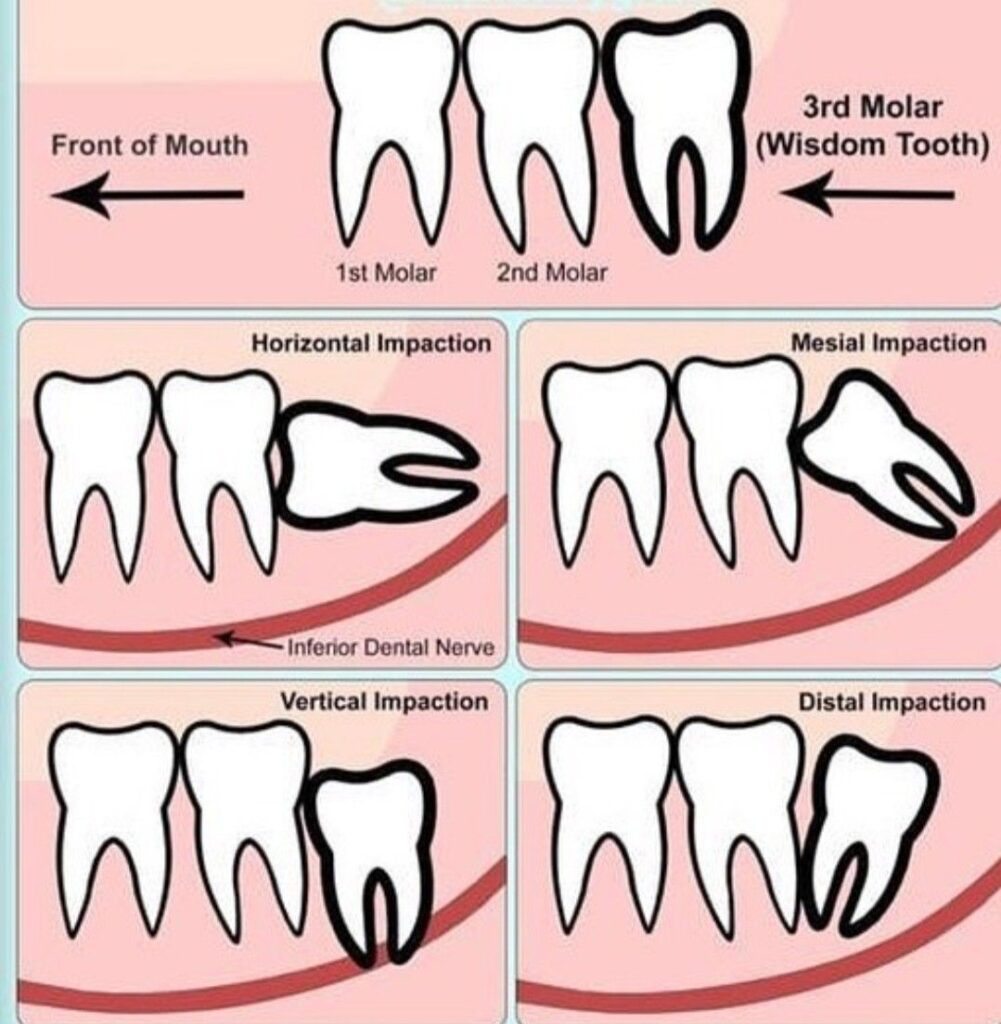
Wisdom teeth, also known as the third molars, often spark a mix of curiosity and concern for they are the last set of teeth to emerge. However, due to their position at the back of the mouth, they often cause a range of dental issues such as crowding and impaction. They can be a source of pain, discomfort, and even infection if timely treatment is not given.
What happens when one of these late bloomers require treatment? Is root canal treatment a viable option, or should extraction always be the solution?
In the rest of this article, we will explore more about root canal, and whether the treatment on a wisdom teeth is a suitable option.
What is Wisdom Teeth?
Wisdom teeth, are the last set of teeth to emerge in the back of the mouth, usually between the ages of 17 and 25. Most people have four wisdom teeth, with two on the upper jaw and two on the lower jaw. However, some may have fewer or even none at all.
Wisdom teeth served a purpose in our ancestors, who had larger jaws and needed the extra molars to chew tough and fibrous foods. However, in modern times, wisdom teeth are often considered vestigial structures and are not necessary for proper chewing or dental function. In fact, they can often cause more harm than good.
Due to their location and the limited space available for them in the mouth, wisdom teeth can sometimes lead to complications such as:
- Impaction: Wisdom teeth may become partially or fully impacted, meaning they are unable to fully emerge through the gum tissue or are trapped below the jawbone. Impacted wisdom teeth can cause pain, swelling, and even infection.
- Crowding: The eruption of wisdom teeth can cause crowding or misalignment of the neighboring teeth, leading to discomfort and potential orthodontic issues.
- Decay and gum disease: Due to their position at the back of the mouth, wisdom teeth can be more difficult to clean properly. This can result in a higher risk of tooth decay and gum disease.
Many dentists recommend removing wisdom teeth as a preventative measure before they cause problems. However, in some cases, wisdom teeth can be left in place if they are healthy and not causing any issues.

What is Root Canal Treatment?
Root canal treatment, also known as endodontic therapy, is a dental procedure performed to treat an infected or damaged tooth. The procedure involves removing the inflamed or infected pulp, cleaning and disinfecting the internal tooth structure, and then filling and sealing the tooth
The pulp is the soft tissue that contains nerves, blood vessels, and connective tissue inside the tooth. If the pulp becomes infected or damaged due to decay, injury, or other factors, it can cause pain, swelling, and sensitivity in the tooth.
During a root canal procedure, the dentist will numb the area around the tooth and create an opening in the top of the tooth to access the pulp chamber. They will then remove the damaged or infected pulp tissue and clean the root canals to remove any bacteria and debris. Once the canals are cleaned, they are filled with a material to prevent further infection and sealed with a filling or crown.
You may be interested in: Can Wisdom Teeth Grow Back After Being Extracted?
After the procedure, the tooth may be sensitive for a few days, but this can be managed with over-the-counter pain relievers and should subside within a week or so.
Root canal treatment can save a damaged or infected tooth, allowing it to remain in place and function normally, without the need for extraction. The success rate of root canal treatments is quite high, and the procedure can provide long-lasting relief from pain and discomfort, as well as prevent further complications associated with tooth infections.
Is Root Canal on Wisdom Teeth Possible?
Yes, it is possible to conduct root canal treatment on your wisdom teeth. However, it is rarely performed due to the fact that the teeth is located so far back in the mouth. This makes it much more challenging to perform the dental procedure. The difficulty is increased if the wisdom teeth is partially or even fully impacted. This limited access makes a root canal procedure a less recommended procedure for the dentist or endodontist.
Additionally, root canal on wisdom teeth are discouraged as wisdom teeth often have more complex root structures, including curved or multiple roots. This can make the process of cleaning, shaping, and filling the root canals more difficult and time-consuming. Root canal treatment on wisdom teeth have a significantly lower success rate than the same procedure on other teeth.
Last but not least, the long-term success of a root canal on a wisdom tooth can be more uncertain than for other teeth. The complex anatomy, risk of reinfection, and the potential for future issues with the tooth may reduce the likelihood of a successful outcome.
Should I Do Root Canal on My Wisdom Teeth?
While root canal treatment can be done on a wisdom teeth, it is not recommended to do so. In fact, most dentist discourage patients from undergoing root canal on a wisdom teeth. This is primarily due to the increased difficulty and uncertainty associated with the conducting of a root canal treatment on a wisdom teeth.
In most cases, an extraction of the wisdom teeth is recommended as it eliminates any future dental complications and relieves the adjacent from crowding. Extraction is also often a simpler and more cost-effective solution compared to other treatment options. To identify if you need to have your wisdom teeth removed, take this short quiz!
However, if a root canal is to be conducted, your dentist will first evaluate the condition of the wisdom tooth and take into consideration factors such as the extent of the decay or damage, impaction of the teeth, and the overall oral health.
Takeaway
To conclude, root canal treatment is possible for wisdom teeth, but it is generally more challenging and less frequently recommended compared to other teeth. The unique position and complex anatomy of wisdom teeth can make the root canal procedure more difficult, and the long-term success rate may be more uncertain.
In many cases, extraction of the wisdom tooth is preferred as it is a more practical and cost-effective solution, particularly if the tooth is impacted or causing issues such as crowding or infection. However, each case is unique, and the decision to perform a root canal or extraction should be made in consultation with a dental professional,






